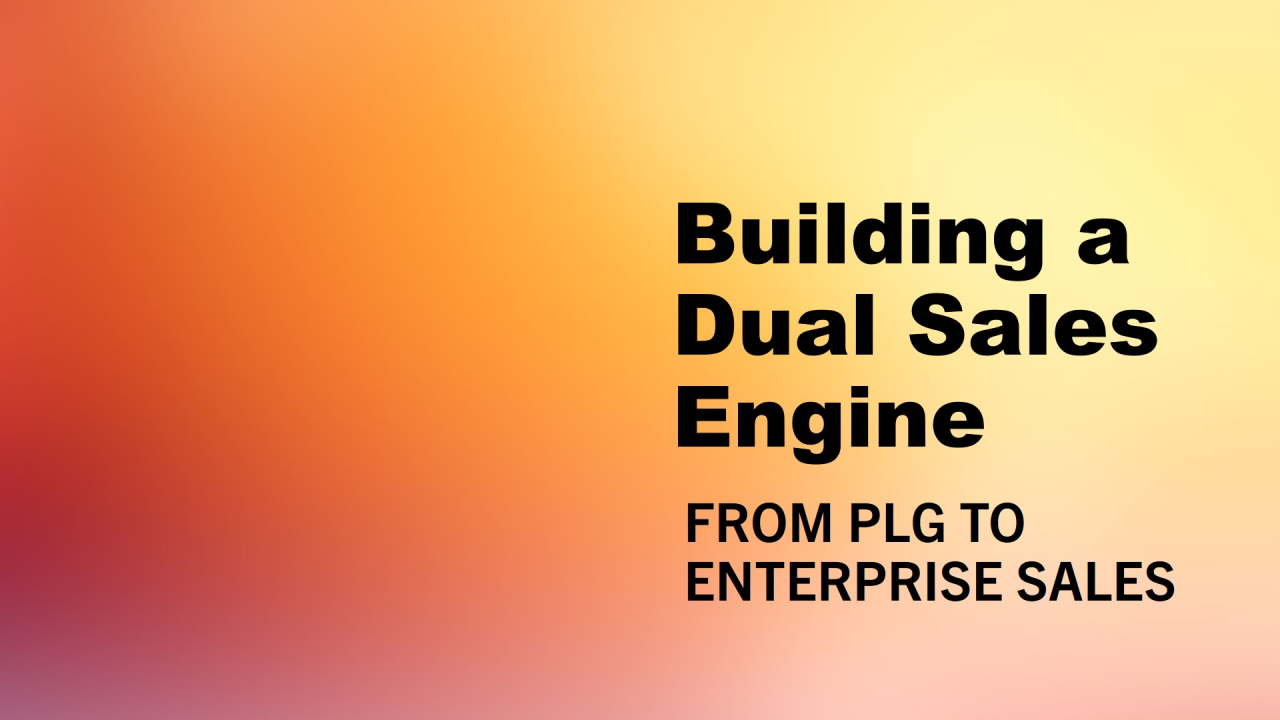From PLG to Enterprise Sales: Building a Dual Engine for SaaS and AI Success

In the SaaS and AI world, two powerful frameworks guide a start-up’s growth journey, especially as it nears product-market fit: Product-Led Growth (PLG) and Enterprise Sales. Each framework has proven its value, but they play different roles in scaling a company. And as AI continues to revolutionise the SaaS landscape, both frameworks are more essential than ever, each addressing unique needs for scale, depth, and adaptability in a rapidly changing market.
PLG, a popular approach among Indian SaaS and AI founders, leverages a product’s self-serve, inbound appeal to attract thousands of users quickly and at a low cost. It’s a great way to build brand momentum, especially among small to mid-sized businesses (SMBs). But with AI-powered products becoming mainstream, founders must navigate more complex buyer demands that require a high-touch approach. To scale sustainably and meet the demands of AI-driven solutions, companies must leverage both PLG and enterprise sales for lasting growth.
1. Product-Led Growth (PLG) and AI: The Foundation for Rapid Scale
PLG is built around inbound sales and aims to attract customers by creating a product experience so engaging and valuable that users flock to it organically. It’s a model well-suited for small to mid-market customers (SMBs) due to its low friction and high scalability.
With AI tools, PLG companies can go further by automating personalised user experiences, optimising onboarding, and gathering insights into user behaviour. AI can streamline customer journeys and amplify inbound engagement, allowing SaaS companies to scale quickly with tailored support. Using tools like predictive analytics and AI-driven customer insights, PLG companies can gather data on user engagement and optimise the product experience accordingly.
For instance, Slack used PLG to achieve rapid growth globally, while Zoho and Freshworks became household names in the Indian SaaS space by capturing thousands of SMBs with their low-cost, high-value offerings. But while PLG can attract large numbers of users, it’s not the full picture for SaaS companies aiming to secure long-term, high-value contracts—especially with AI products that require customization and support. Relying solely on inbound demand can make it difficult to scale predictably, which is why enterprise sales is essential for SaaS companies looking to reach the next level.
2. The Value of Enterprise Sales in the AI Era
Enterprise sales focuses on high-value, long-term relationships with large accounts. This approach involves longer sales cycles, consultative selling, and a commitment to helping customers succeed over time. For AI-driven SaaS products, enterprise sales becomes even more critical, as companies must adapt to the unique data security, compliance, and integration requirements of each client.
Unlike the self-serve nature of PLG, AI products often require custom solutions and ongoing support to unlock their full potential for enterprise clients. Software companies like Eka and Icertis have demonstrated that enterprise sales is not just viable for Indian SaaS and AI — it’s critical for stable, predictable revenue. These companies focus on becoming trusted partners rather than simply vendors, which enables growth through upselling, cross-selling, and deep integration.
While PLG provides a strong foundation for inbound growth, enterprise sales allows SaaS and AI companies to become strategic partners for enterprises adopting AI. In this role, SaaS and AI providers help clients integrate AI-driven solutions, navigate compliance needs, and gain data insights that fuel growth.
3. Case Studies from Together fund portfolio: Start up companies focused on sales
Dhiwise: Scaling Beyond PLG with Enterprise AI Accounts
Dhiwise, a platform enabling developers to generate AI-powered code from designs, began its journey with a PLG approach. In its first few years, Dhiwise scaled to over 200,000 users by leveraging inbound demand, gaining insight into its ideal customer profile (ICP) and refining its product.
Recognizing a high-value opportunity within technology services, Dhiwise pivoted to focus on enterprise accounts with large ACV contracts, particularly within India’s $200-billion technology-services sector. AI drove demand for automated code generation, allowing Dhiwise to position its offering as a strategic asset. Had Dhiwise focused solely on winning PLG users, it might have missed this lucrative enterprise market. By integrating enterprise sales, Dhiwise broadened its revenue base and secured a predictable growth path.


